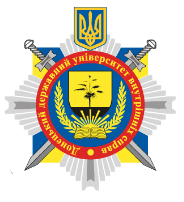АКТУАЛЬНІ ПИТАННЯ ВИКОРИСТАННЯ СПЕЦІАЛЬНИХ ЗНАНЬ В ІНФОРМАЦІЙНОМУ ЗАБЕЗПЕЧЕННІ РОЗСЛІДУВАННЯ КРИМІНАЛЬНИХ ПРОСТУПКІВ
DOI:
https://doi.org/10.32366/2709-9261-2021-1-1-43-51Ключові слова:
спеціаліст; експерт; експертиза; спеціальні знання; освідування; дізнання; кримінальні проступки; інформаційне забезпечення.Анотація
Розслідування кримінальних правопорушень, особливо в сучасних умовах, важко уявити без допомоги осіб, які володіють спеціальними знаннями з різних галузей науки, техніки, мистецтва, ремесла тощо. Основними формами застосування таких знань є залучення спеціалістів у кримінальне провадження (ст. 71 КПК України) та проведення судових експертиз (ст.ст. 242–244 КПК України). У статті розглянуто питання щодо використання спеціальних знань у кримінальному провадженні, зокрема, під час розслідування кримінальних проступків, а також форми використання таких знань в інформаційному забезпеченні розслідування кримінальних правопорушень, фактичні й нормативні підстави їх застосування, форми фіксації і процесуального оформлення, у тому числі проведення освідування та судово-медичної експертизи.
Посилання
Гросс Г. Руководство для судебных следователей как система криминалистики / пер. с нем. Л. Дудкина, Б. Зиллера. СПб., 1908. 1040 с.
Криміналістика : підручник : у 2 т. / А. Ф. Волобуєв, М. В. Даньшин, А. В. Іщенко та ін.; за заг. ред. А. Ф. Волобуєва, Р. Л. Степанюка, В. О. Малярової; МВС України, Харків. нац. ун-т внутр. справ. Харків, 2018. Т. 1. 384 с.
Тактика використання спеціальних знань у кримінальному судочинстві. Призначення і проведення судових експертиз. URL: https://u.to/ObwnGw (дата звернення: 06.02.2021).
Бишевець О. В. Використання спеціальних знань у доказуванні в кримінальних провадженнях. Вісник кримінального судочинства. № 2. 2015. С. 192. URL: https://vkslaw.knu.ua/images/verstka/2_2015_Bushevec.pdf (дата звернення: 07.02.2021).
Одерій О. В. Теорія і практика розслідування злочинів проти довкілля : монографія. Харків: Діса плюс, 2015. 528 с.
Гончаренко В. Г. Спеціальні знання: генезис, предмет, рівні, форми використання в доказуванні. Вісник Академії адвокатури України. 2007. № 2 (9). С. 22–34.
Лазарева Л. В. Специальные знания и их применение в доказывании по уголовному делу : монография. Москва: Юрлитинформ, 2009. 224 с.
Салтевський М. В. Криміналістика (у сучасному вигляді) : підручник. Київ: Кондор, 2008. 588 с.
Щербаковский М. Г., Кравченко А. А. Применение специальных знаний при раскрытии и расследовании преступлений. Харьков: Ун-т внутр. дел, 1999. 78 с.
Кочура О. О. Визначення поняття «спеціальні знання» та їх використання у кримінальному провадженні. Сучасні тенденції розвитку криміналістики та кримінального процесу. 2017. С. 284–285.
Лук’янчиков Є. Д. Інформаційне забезпечення розслідування злочинів (правові і тактико-криміналістичні аспекти) : дис. ... д-ра юрид. наук : 12.00.09. Київ, 2005. 429 с.
Ищенко Е. П. Понятие и структура информационного обеспечения следственной деятельности. Вісник Луганського державного університету внутрішніх справ імені Е. О. Дідоренка. Спец. випуск. 2008. № 5. Ч. 1. С. 3–12.
Усманов Р. А. Информационные основы предварительного расследования : учебн. пособ. Москва: Юрлитинформ, 2006. 208 с.
Кудінов С. С. Інформаційне забезпечення розслідування злочинів: сучасний стан та шляхи вдосконалення. Вісник Луганського державного університету внутрішніх справ імені Е. О. Дідоренка. 2011. № 1. С. 280–285.
Волобуєва О. О. Взаємодія слідчого з фахівцями під час збору інформації про особу, що скоїла злочин : автореф. дис. … канд. юрид. наук. : 12.00.09 / Київський національний університет внутрішніх справ. Київ, 2006. 20 с.
Абетка захисника щодо кримінальних проступків 2020. URL: https://u.to/oLwnGw (дата звернення: 07.02.2021).
Сімакова-Єфремян Е. Б. До питання про введення у кримінальне процесуальне законодавство поняття «висновок спеціаліста». Теорія та практика судової експертизи. 2019. № 20. С. 110–120.
Про внесення змін до деяких законодавчих актів України щодо спрощення досудового розслідування окремих категорій кримінальних правопорушень : Закон України від 22.11.20218 № 2617-VIII. URL: https://zakon.rada.gov.ua/laws/show/2617-19 (дата звернення: 06.02.2021).
Лисиченко В. К., Циркаль В. В. Виды участия специалистов на предварительном следствии. Криминалистика и судебная экспертиза. Киев, 1985. Вып. 30. С. 3–10.
Дубинский А. Я. Исполнение процессуальных решений следователя. Правовые и организационные проблемы : монография. Киев: Наукова думка, 1984. 182 с.
Одерій О. В. Розслідування злочинів щодо незаконного обігу наркотичних засобів: встановлення фізичного стану допитуваного. Теорія і практика судової експертизи і криміналістики : матеріали ІІ науково-практичної конференції (м. Київ, м. Маріуполь, 27 лютого
року). Київ–Маріуполь, 2019. С. 122–124.
Шейфер С. А. Проблемы развития системы следственных действий. Уголовное право. 2002. № 3. С. 90–92.





